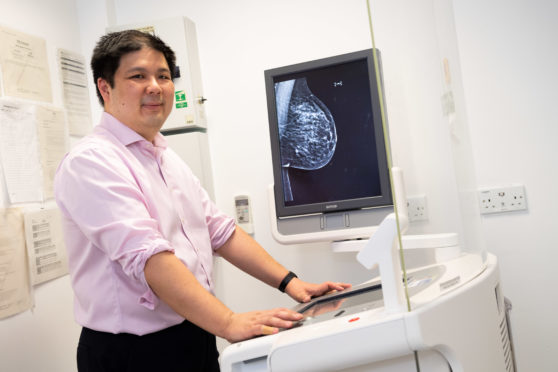Women are being urged to come forward to be screened for breast cancer, despite new figures showing those in the north and north-east of Scotland are the most likely to do so.
The NHS statistics show uptake of the tests is well above the Scottish average in Orkney and Shetland, with Grampian leading the way on the mainland.
But there is some cause of concern, with uptake of the tests down across the entire country since 2011.
Across Scotland, breast cancer screening is credited with saving around 130 lives a year.
Ladies between the ages of 50 and 70 are invited for breast cancer screening once every three years, with success for staff measured in how many take up the offer.
Between April 2015 and March 2018, NHS Orkney had the highest uptake of the country’s 14 territorial health boards with 83.7%, followed by Shetland and Grampian.
The Western Isles and Highlands complete the top five areas women are most likely to take up the offer of the routine checks.
More than three quarters aged 50-70 are arranging screenings, compare to a national average of 71%.
But that national rate is down from nearly 75% in 2011 – a reduction that has forced professionals to make a public plea for more patients to take up the chance.
Clinical director of the North East of Scotland Breast Screening Centre Gerald Lip said: “October is Breast Cancer Awareness Month and ultimately breast screening can save your life or that of someone you love.
“While these are welcome and highly encouraging figures and I would urge ladies to continue to attend for screening when invited.
“Despite our figures being the best of any mainland board, we would like them to be back above the 80% mark, as they have been in previous years.
Dr Lip added: “The process is quick, easy and there is minimal discomfort, so we’d encourage women to get along to get checked.
“We’d also hope people would encourage their mothers, sisters, grandmothers, aunties and friends to get screened if they haven’t been.
“With the breast screening programme we often detect cancer much earlier than we would otherwise and over the years it has undoubtedly saved thousands of lives as a result.”
